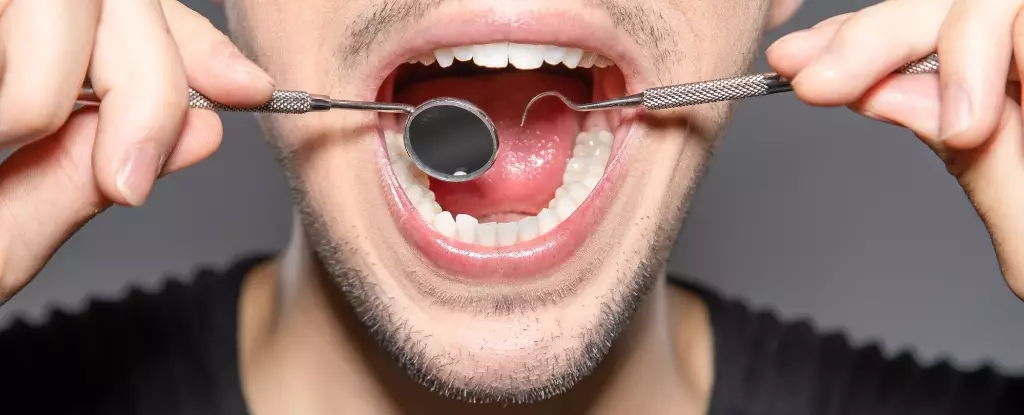The shortage of dentists in the UK has had a significant impact on the early detection of mouth cancer, according to the charity Oral Health Foundation. A survey by the BBC revealed that 90% of NHS dentists in the UK were not accepting new adult patients for NHS treatment. This scarcity of dental professionals has resulted in a rise in cases where mouth cancers are diagnosed at a late stage.
Every year, approximately 9,000 people in the UK are diagnosed with mouth cancer, and tragically, over 3,000 lives are lost to this disease. However, mouth cancer has an excellent cure rate of over 90% if caught early and treated with relative simplicity. Unfortunately, about half of the new mouth cancer diagnoses in the UK occur when the disease is already advanced.
If you find it difficult to access dental care, it becomes vital to monitor your own oral health for any early signs of cancer. Regularly checking your mouth for symptoms can help in the early identification of mouth cancer. Some common symptoms include ulcers in the mouth that do not heal within three weeks, persistent lumps or swelling in the mouth, jaw, or neck, and the presence of new red or white patches. Other signs include numbness in the tongue or other areas of the mouth, unexplained loose teeth, and chronic sore throat or hoarseness lasting more than six weeks.
If any of these symptoms are present, it is important to seek medical attention from your GP or, if available, a dentist as soon as possible. In the UK, dentists and doctors have the ability to refer patients to hospital specialists for urgent suspected cancer assessments. These referrals guarantee that patients are seen within 14 days to either confirm or exclude a cancer diagnosis.
In recent years, there have been significant advancements in the treatments available for mouth cancer. These advancements have enhanced the patient’s experience and allowed for more personalized treatment plans. New techniques such as robotic surgery and immunotherapy have expanded the range and scope of treatments. Additionally, improved understanding of the disease has resulted in doctors being able to tailor treatment approaches specifically to each patient’s needs.
Participation in clinical trials has also played a crucial role in advancing our knowledge of mouth cancer and providing high-quality evidence to support treatment selection. Many patients successfully complete treatment and recover well. However, in some cases, advanced cancer stages and complex treatments can have lasting effects on a person’s facial appearance, speech, swallowing, and shoulder movement. These physical impairments can significantly impact a person’s social interactions and may require adjustments to their employment and lifestyle.
Certain lifestyle factors are known to increase the risk of developing mouth cancer. These include smoking, using tobacco in various forms, excessive alcohol consumption, poor diet, and chewing betel quid (paan). Additionally, mouth cancer can be linked to the human papillomavirus (HPV), which can be transmitted through oral sex. People who take immunosuppressive medication, such as organ transplant recipients, are also at a higher risk of developing mouth cancer. However, it is important to note that almost half of all mouth cancer cases are preventable by making healthier lifestyle choices.
Regular dental checkups and oral hygiene visits play a crucial role in the detection and prevention of mouth cancer. The shortage of dentists in the UK has unfortunately resulted in many cases of mouth cancer being diagnosed at an advanced stage. However, self-examination for early signs of the disease and timely medical attention can improve the chances of successful treatment. Advancements in treatment techniques and a better understanding of the disease have provided hope for patients, although certain impairments and lifestyle adjustments may be necessary. By adopting healthier lifestyles and seeking regular dental checkups, we can take proactive steps towards preventing mouth cancer and protecting our oral health.


Leave a Reply